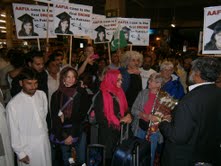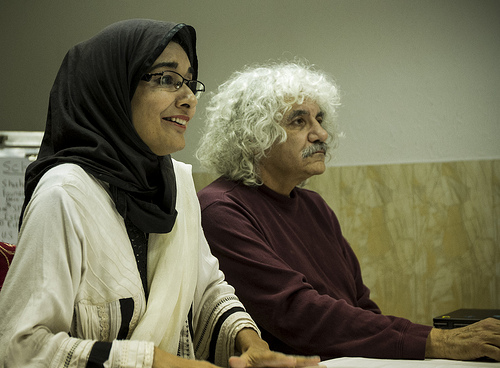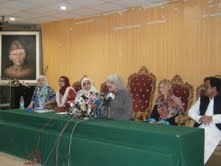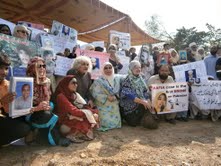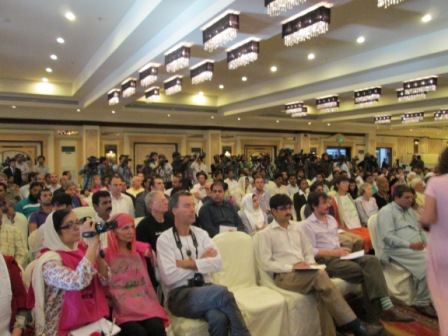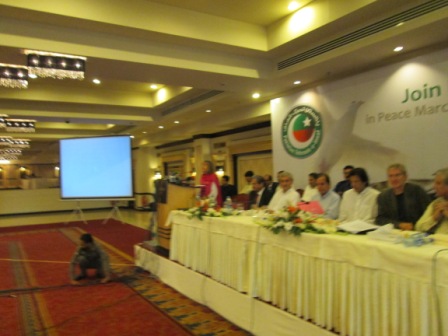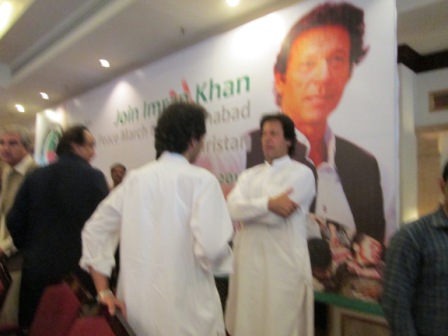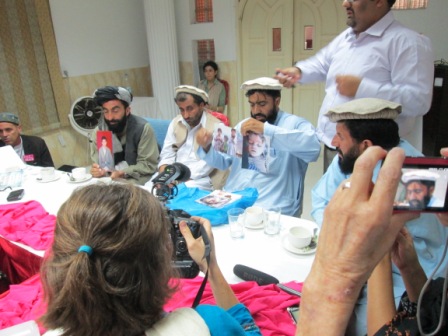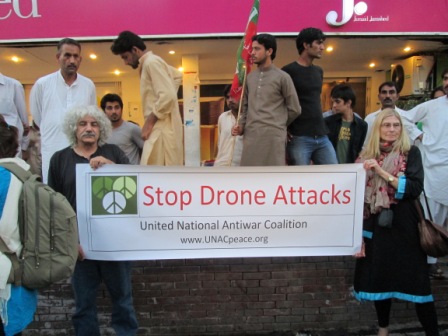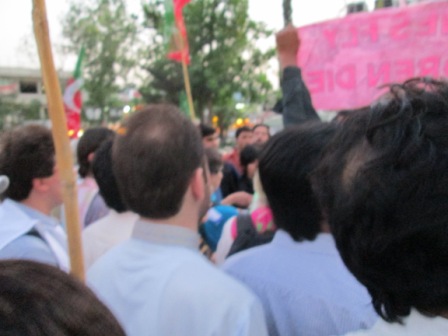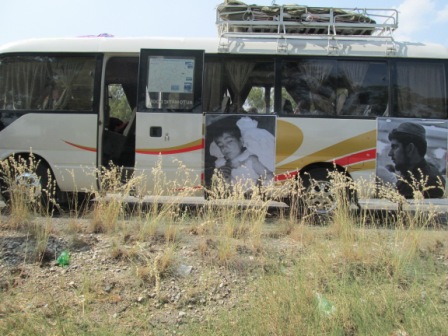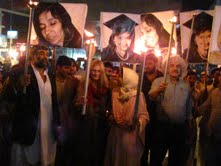The blues is, praise be… He had just barely gotten done with his work for the day, his sun up to sun down work helping Brother Barnes shoe the plow horses, a job he had held since his older brother, Ben, had gotten back from the war, the Great War, the war to end all wars, the war for so-called democracy, World War I, if anybody was asking and upon returning had decided to move on to Clarksville and later Memphis, on Mister’s cotton boll massive ten thousand acre delta plantation, than his father took him aside and asked him , really ordered, to wash up and get ready to go over to Lancer Lane. The words Lancer Lane made him jump for joy inside, for this night, this very Saturday night he would finally, finally, get to play his new guitar, well not really new for that instrument had been passed down to his father from who knows when, maybe back to pharaoh times when those old pyramid slaves needed something to take their minds off their back-breaking work on their relax minute, in front of a real crowd at the Lancer Lane juke joint and not just before his father, his siblings, and a few stray cats at Mister’s company store over in Lancersville.
No, he was stepping up in the world, the world that mattered, the world of those rough-hewed, hard drinking walking daddies (and their clinking dressed to the nines, dressed to the soft kitten pillow tumble nines, walked- around women, praise be) that populated the Lancer Lane juke joint on Saturday night (and paid penance, serious penance, at nearby Lancer Lane Lord’s Work Baptist on Sunday morning, many times sliding directly from one site to the other, smoothly if stinking a little of sweat, hard, hard Sonny Boy’s golden liquor, and mussed up pillow tumble sex ), who would decide whether he had the stuff his father thought he had. And decide it in the only way such things were decided, by throwing dollars, real dollars, at him if he was good and broken whisky bottles (or, if tight for dough, as was often the case with tough times as just then, and so bought their whisky by the jar, jars) if he panned. He had asked his father repeatedly since he had turned sixteen to let him accompany him on his journeys to Lancer Lane (the latter as performer and as a, ah, imbiber), but his father maybe knowing the wisdom of sheltering the boy from those whisky bottles and jars if things didn’t work out just like his father, bless him, before him had held off until he was sure, or fairly sure of the night’s outcome.
What sonny boy did not know was that father had relented as much because he was in need of an extra pair of hands in case Big Nig Fingers showed up that night as that he was ready to have dollars thrown at his son. The nature of the dispute between Big Nig Fingers and his father was simply enough explained, a woman, a dressed to the nines pillow tumble woman, Sonny Boy’s woman, Lucille, and her roving eyes, roving eyes that landed, allegedly landed, on his father. Alleged by Sonny Boy although denied, vehemently denied by his father, who had secretly a couple of years back had had an affair with Lucille when Big Nig was trying to take over, well take over something, booze, dope, women, numbers, something in Memphis. So yes, yes indeed, his small-framed father most assuredly and vehemently denied those roving eyes.
A couple of hours later, washed up, dressed up in a clean work shirt and pants he and his father having walked the two dusty miles from their Mister’s plantation-provide quarters, arrived at the juke house, really nothing but a cabin, a log cabin, belonging to Sonny Boy Jackson who used the place as a front for his golden liquor sales as well. (Yes, that Sonny Boy in the days before he went to Clarksville and began the road to some local fame as the best harmonica in 1920s delta Mississippi, even getting a record contract from Bee Records when he was “discovered” by one of the agents that they had sent out scouring the country for talent for their race record division after Mame Smith set the world, the black world and a few hip whites on recorded blues fire.) Now, like most cabins in those parts then, maybe now too, who knows, there was no electricity, hell, nobody practically except Mister (and the Captain, that deduction crazy Captain, docking everybody for his version of not a full bale, for sassing back, for breaking tools, hell, one time for some asthmatic picker just breathing ) had electricity, or a reason to use it just a few chairs, tables, a counter to belly up to for whiskey jar orders (bottles were sold out back away from prying eyes, moneyless prying eyes looking for some cadges swigs), and for the occasion Sonny Boy had a small stage jerry-rigged in the back so the entertainment would not get pushed around too much when things got rowdy, as they always did, later in the evening.
That night he had a surprise coming, or rather two. His father, taking no chances, had arranged to have a few members of the Andersonville Sheiks from up the road, who would later in the decade, some of them anyway, go on to form the Huntsville Sheiks and also get that coveted record contract from Bee Records when sheiks replaced harmonica players and barrelhouse mamas as blues fire among blacks and those few hip whites, to back his son up. So he was going to have a real ensemble, a jug player, a harp player (harmonica, okay) and a washboard man, his father to play banjo (if he was sober enough, and while that was in question most of the night he held up, held up well enough to slide over to Lord’s Work Baptist for the eight o’clock service even if stinking of sweat and liquor). Papa had done right by him, Big Nig Fingers and his Lucille (to his father’s dismay) had decided to take a night off so he would need no cut knife help, and he blasted the place with his strange riffs, riffs going back to some homeland Africa time. Proof: twenty- seven dollars as his share of the house. And no whisky bottles (or jars).
Oh, the second surprise. Miss Lucy, Miss Lucy Barnes, Miss Lucy Barnes, a sweet sixteen going on thirty, and no one needed to explain what that meant when a girl, hell, woman had her wanting habits on, a dark- skinned beauty, all cuddles and curves, the daughter of his” boss,” the plantation blacksmith, had taken notice of him and kept sending small jars of Sonny Boy’s golden liquor his way which just made him play more madly, hell, let’s call it by its right name, he played the devil’s music like he was the devil himself. By the end of the night she was sitting, table sitting, just in front of him, waiting for that last encore. Suddenly she jumped up and started to dance, dance to his encore riff blasted version of Mean, Mistreatin’ Mama shaking her head back and forth furiously indicating that one Miss Lucy Barnes’ was not in that category, at least for that night. They too were seen sneaking into that eight o’clock service at Lord’s Work’s Baptist a little sweaty and stinking of liquor, having spent the previous few hours in the back room of Sonny’s joint, just in case you wanted to know.
***************
The blues ain’t nothing, nothing at all but a good woman on your mind, all curves and cuddles, all be my daddy, daddy, be my walking daddy, build for comfort not for speed just like your daddy, your real daddy, not your long gone daddy (met as you came up river from Lancersville via Memphis and he, he returned from another war to end all wars, this time World War II) just now serving a stretch, a nickel’s worth for armed robbery up in Joliet for some Southside (Southside Chicago, natch)heist that went sour, hell, you told long gone daddy that guns didn’t make the play any better but long gone was just a little too long gone on that twinkle dust and so when Danville Slim called the shots, long gone was long gone, told you about when you were knee high and needing instruction about who, and who not, to mess with when you got your wanting habits on.
Hence, stay away from big women, big-legged, big bosomed, big- lusted, hell, just big everything, like the song, the blue blue blue song says, don’t forget, they will wear you out, wear you out for other women, ditto, long thin gals, hungry girls who have learned man trap tricks in lieu of big appetites , with wanderlust eyes, and twinkle dust noses, itching, checking out every daddy, every daddy that came by her eyes, flashing five dollars bills and another twinkle line, ditto, god’s girls, Sunday morning moaners, smelling of gin, washtub gin, and carrying juke joint slashes, some mean mama cut her up when she wrong- eyed mean mama’s daddy, now Sunday looking for, can you believe it, forgiveness, and trick, getting it, stick with curves and cuddles, an easy rider, a low love easy rider, she’ll treat you right and no heavy overhead, and no damn where have you been daddy questions.
She, Miss Lucy she, all cuddles and curves she, an easy rider, yah, a sweet and low easy rider, to make a man, well, to make a man get his own wanting habits on, so far away, so far from uptown downtown Chi town, far down in sweaty delta Mississippi, maybe still in Clarksville like he left her that night, that moonless 1942 night, when he had to break-out from delta sweats, from working sunup to blasted sundown for no pay, for chits, Christ what are you supposed to do with company chits when you had your Miss Lucy wanting habits on, needed, no craved, some of Sonny Boy’s honey liquor, from the Mister on his ten thousand acre cotton boll plantation (selling every last boll too, good or bad, to the U.S. Army, for, for what else, uniforms), and those damn deductions from the Captain, for, for sassing, and grab that bus, that underground bus, out on Highway 61, and head, yah, head north following the north star, following the migrant trail up-river. A quick stop at Memphis to see if any of the guys, B.B. (no, not the one you are thinking of), Harmonica Slim, Delta Dark, Bobby Be-Bop, Big Joe, Muddy (yes, that Muddy slumming down river and on the low from some Chi town wench whose man was looking, knife looking, for the guy who messed with his baby and left her blue, real blue. True Muddy story.) needed a guitar max daddy player.
Then straight to Chi town and work, work in the hog butcher to the world, work in the Casey steel driving hammering foundry to the world , work in the grain elevator to the world, work in the farm machinery equipment factory to the world , good, steady, sweaty work, five day work and done, five day work, maybe overtime, glad-handed overtime on Saturday, and done, no Captain’s noise , except maybe some rough Irish cop night stick but, mainly, just hell work, and then off to bumbling squalid three- decker hovel, overcrowded, over-priced, under heated, damn, nothing but a cold water flat with about six different nationalities chattering on the fetid Maxwell- connected streets.
Home, home long enough to turn overalls, sweated blue overalls, into Saturday be-bop blues master, all silk shirt, about five colors, blue blue, green green sun yellow, deep magenta, some violent purple, all fancy dance pants, all slick city boy now shoes (against that po’ boy Lancersville no shoe night to make daddy, real daddy cry, and mama too), topped by a feathered soft felt hat, de riguer for Saturday prances. For a while singing and playing, he, mainly playing that on fire(electric) guitar first learned from daddy, real daddy, down the delta when he was from hunger and he and daddy Saturday juked for whiskey drinks (for daddy) and sodas and ribs for him, for nickels and dimes with his long gone daddy (gone daddy previously mentioned tired of nickels and thus plugging an ironic nickel’s worth) out behind Maxwell Street, only the prime guys, the guys Chess, or Ace, or Decca, or, some race label were interested in, for a while, got to play the big street, the big attention, the big sweep, everybody else behind for nickels and maybe an off-hand stray piece, a joy girl they called them, hell he called them when he had his wanting habits on, not all black or mixed either, a few white joys looking for negro kicks, looking for kicks before Forest Lawn stockbrokers, or futures traders made their claims, looking over the new boys in order to say that they had that, had that before they headed out to Maxwell Street glare or sweet home, yah, sweet home Joliet. And Miss Lucy waited, waited down in some lonesome Clarksville crossroad, dust rolling in, sun beginning to rest, watching the daily underground bus heading north, north to her Johnny Blaze, Johnny quick on that amped up guitar and the stuff of dreams.
The blues ain’t nothing, nothing at all but a bad woman on your mind, a woman walking in your place of work, your stage, your Carousel Club, you just trying to get that damn guitar weapon, baby, mama, sugar, main squeeze, in tune, the one just off of Maxwell Street, mecca, with her walking daddy, eyeing you that first minute, big blond blue eyes, and even walking daddy can feel the heat coming off her, animal heat mixed up with some Fifth Avenue perfume bought by the ounce , feel that he was going to spend the night on a knife’s edge. The Carousel Club got a mix, got a mix on Friday nights when the be-bop crazy white girls, not all big blond blue eyes but also mixed, decided that be-bop jazz, their natural stomping grounds, over at places like the Kit Kat Club was just too tame for their flaming 1950s appetites and so they went slumming, slumming with a walking daddy, a black as night walking daddy, make no mistake, in tow just in case, in case knives came into play.
She had her fix on him, her and that damn perfume that he could smell across the room, that and that animal thing that some woman have, have too damn much of like his daddy, his real daddy, told him to watch out for back when he was knee-high and working the jukes for cakes and candies (and daddy for Sonny Boy’s honey liquor). Just what he needed, needed now that he had worked his way up from cheap street playing for nickels and dimes (and, okay, an off-hand piece once the joy girls, some of them white like this girl, looking for negro kicks, badass negro kicks and then back to wherever white town, heard him roar up to heaven on that fret board) to backing up Big Slim, yah, that Big Slim who just signed with Chess and was getting ready to bring the blues back to its proper place now that it looked like that damn rock and roll, that damn Elvis who took all the air out of any other kind of music had run its course. Then it started, she sent a drink his way, a compliment to his superb playing on Look Yonder Wall according to Millie the waitress who played the messenger, then another, ditto on The Sky Is Crying and a Millie watch out remark. Walking daddy was not pleased and she looked like she was getting just drunk enough to make her move (hell, he had seen that enough, and not just with these easy white girls). No sale tonight girlie that bad ass negro really does look bad ass, bad ass like long gone daddy whom he started on these mean streets with and was still finishing up another nickel at Joliet. She made her way to the stage as the first set ended. Pleasant, hell they are all pleasant, in that polite way they have been brought up in for about four or five generations, but still with that come hither perfume and that damn hungry look. No sale, no sale girlie, not with bad ass looking daggers in his eyes. And that night there wasn’t. Next Friday night she came in alone, came in and sat right in front of him. Didn’t say a word at intermission, just sent over a drink for a superb rendition of Mean Mistreatin’Mama , and left it at that.
After work she was waiting for him out in back, he nodded at her, and she pointed at her car, a late model, and they were off. They didn’t surface again for a week.
**************
The blues ain’t nothing but…He, Daddy Fingers (strictly a stage front name, with a no will power Clarence Mark Smith real name needing, desperately needing, cover just like a million other guys trying to reach for the big lights, trying to reach heyday early 1950s Maxwell Street, hell, maybe trying get a record contract, a valued Chess contract, and that first sweet easy credit, no down payment, low monthly payments Cadillac, pink or yellow, with all the trimming and some sweet mama sitting high tit proud in front), had to laugh, laugh out loud sometimes when these white hipsters asked him what the blues were.
He, well behind the white bread fad times, having spent the last twenty years mostly hidden down South, the chittlin’ circuit down South, from Biloxi to Beaumont, working bowling alleys, barbecue joints (the best places where even if the money was short you had your ribs and beer, a few whisky shots maybe, some young brown skin with lonely eyes woman lookin’ for a high-flying brown skin man in need of a woman’s cooking , or at least a friendly bed for a few nights), an odd juke house now electrified, some back road road-side diner converted for an evening into a house of entertainment, hell even a church basement when the good lord wasn’t looking or was out on an off Saturday night had not noticed that these kids asking that august question were not his old Chi town, New Jack City, ‘Frisco Bay hipsters but mostly fresh-faced kids in guy plaid short shirts and chinos and girl cashmere sweaters and floppy skirts were not hip, not black-hearted, black dressed devil’s music hip. For one thing no hipster, and hell certainly no wanna-be hipster, would even pose the question but just dig on the beat, dig on the phantom guitar work as he worked the fret board raw, dig on being one with the note progression. Being, well, beat.).
Plaid and cashmere sweater crowding around some makeshift juke stage, some old corner barroom flop spot or like tonight here on this elegant stage with all the glitter lights at Smokin’ Joe’s Place, Cambridge’s now the home of the blues, the 1970s reincarnation of homeland Africa, sweated pharaoh slave plantations, Mister and Captain’s jim crow plantations, juke joints, sweet home Chicago, for all who were interested in the genealogy of such things came around looking, searching for some explanation like it was some lost code recently discovered like that Rosetta Stone they found a while back to figure out what old pharaoh and his kind said (hell, he could have deciphered that easy enough for those interested- work the black bastards to death and if they slack up, whip them, whip them bad, whip them white, and ain’t it always been so).
So he told them, plaid guy and cashmere bump sweater girl, told them straight lie, or straight amusing thing, that like his daddy, his real daddy who had passed down the blues to him, and who got it from his daddy, and so on back, hell, maybe back to pharaoh times when those slave needed something to keep them working at a steady death-defying pace, that the blues wasn’t nothing but a good woman on your mind. And if some un-cool, or maybe dope addled wanna-be Chi town hipster, or some white bread all glimmering girl from Forest Hills out for negro kicks, had been naïve enough to ask the question that would have been enough but plaid and cashmere wanted more.
Wanted to know why the three chord progression thing was done this way instead of that, or whether the whole blues thing came from the Georgia Sea Islands (by way of ancient homeland Africa) like they had never heard of Mister’s Mississippi cotton boll plantation, Captain’s lashes, broiling suns, their great grandfathers marching through broken down Vicksburg, about Brother Jim Crow, or about trying to scratch two dollars out of one dollar land. Wanted to know if in Daddy Finger’s exalted opinion Mister Charley Patton was the sweet daddy daddy of the blues, wanted to know if Mister Robert Johnson did in fact sell his soul to the devil out on Highway 61, 51, 49 take a number that 1930 take a number night, wanted to know if Mister Mississippi John Hurt was a sweet daddy of an old man (also“discovered” of late) like he seemed to be down in Newport, wanted to know if black-hearted Mister Muddy really was a man-child with man-child young girl appetites, wanted to know if Mister Howlin’ Wolf ever swallowed that harmonica when he did that heated version they had heard about of How Many More Years (not knowing that Wolf was drunk as a skunk, high- shelf whisky not some Sonny Boy’s home brew, when he did that one or that, he Daddy Fingers, had backed Wolf up many a night when Mister Hubert Sumlin was in his cups or was on the outs with the big man). Wanted to know, laugh, if Mister Woody Guthrie spoke a better talking blues that Mister Lead Belly, or Mister Pete Seeger was truer to the blues tradition that Mister Bob Dylan (like he, Daddy Fingers, spent his time thinking about such things rather than trying to keep body and soul together from one back of the bus Mister James Crow bus station to the next in order to get to some godforsaken hidden juke joint to make a couple of bucks, have some of Sonny Boy’s son’s golden liquor, and maybe catch a stray lonesome Saturday woman without a man, or if with a man, a man without the look of a guy who settled his disputes, his woman disputes, at the sharp end of a knife, wanted to know, wanted to know, wanted to know more than the cold hard fact that, truth or lie, the blues wasn’t nothing but a good girl on your mind. Nothing but having your wanting habits on. But that never was good enough for them, and thus the fool questions. And always, tonight included, the fool Hey Daddy Fingers what are the blues. Okay, baby boy, baby girl, the blues is …


